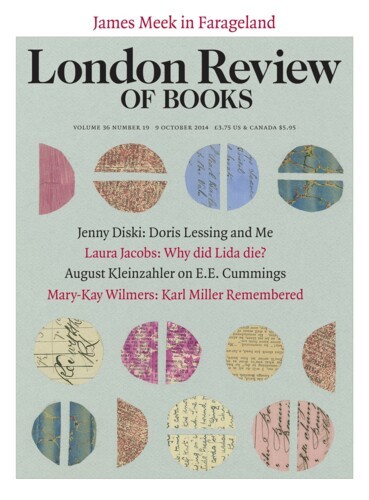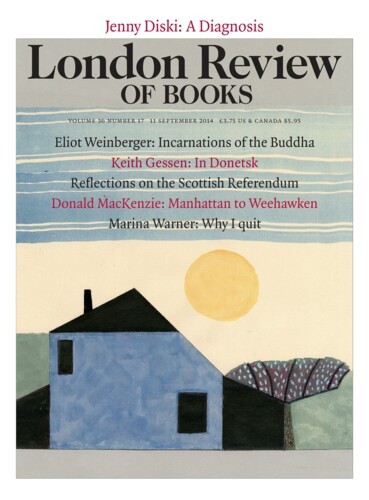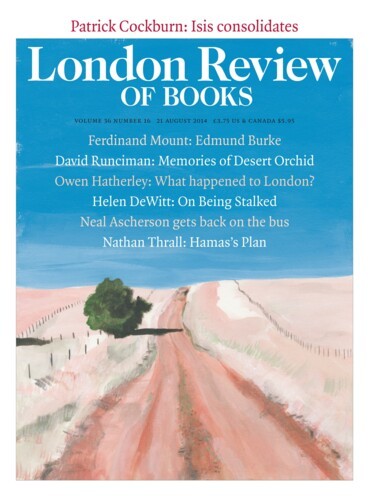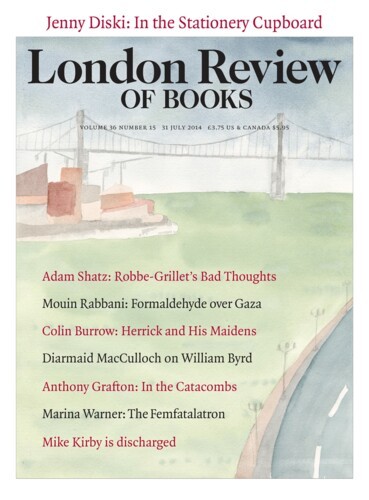What to call her?
Jenny Diski, 9 October 2014
When she died last November at the age of 94, I’d known Doris Lessing for fifty years. In all that time, I’ve never managed to figure out a designation for her that properly and succinctly describes her role in my life, let alone my role in hers. We have the handy set of words to describe our nearest relations: mother, father, daughter, son, uncle, aunt, cousin, although that’s as far as it goes usually in contemporary Western society. Doris wasn’t my mother. I didn’t meet her until she opened the door of her house after I had knocked on it to be allowed in to live with her. What should I call her to others?





